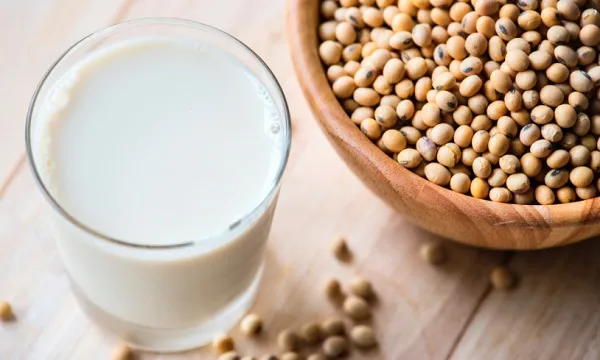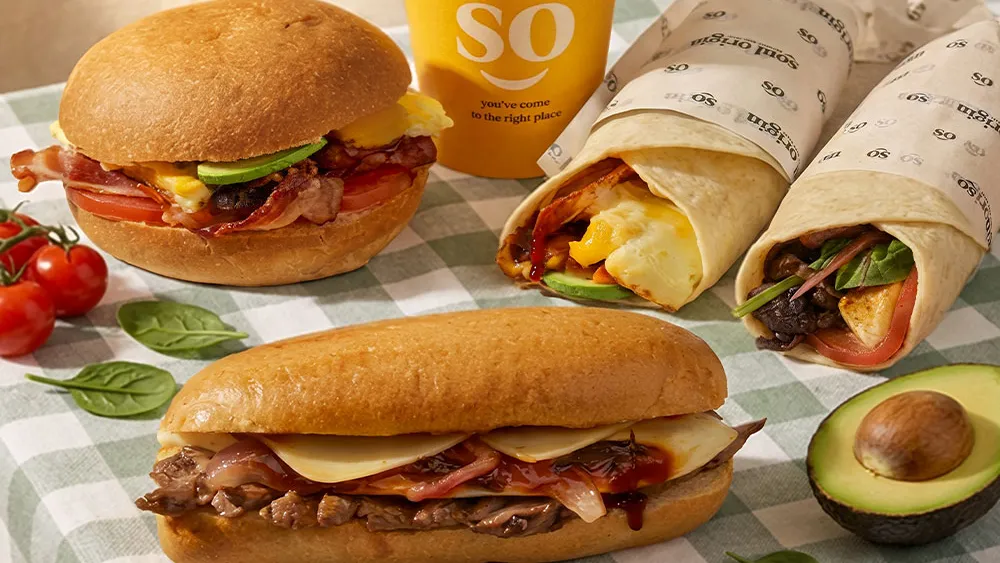
The five most common dietary requests in 2019
By Rachel ScoularWorking in an industry where the customer is pivotal to your success, it’s important to acknowledge and understand their needs and requests. We used to roll our eyes at the ‘difficult’ customer with an allergy or demand. But in 2019, it’s time to embrace their needs and preferences – and if you don’t, they’ll simply go next door to the store that will. Working as a consultant in product development and nutritional communications, I’ve always got my finger on the pulse of dietary trends – here are the top five requests we’ve seen so far in 2019:
Plant-based
Plant-based is an overarching term to include both vegetarian and vegan diets. It should be no surprise that this falls first on our list, with findings released from Roy Morgan earlier this year indicating roughly 2.5 million Australians now eat a mainly vegetarian diet. It is more difficult to quantify the number of vegans, however independent parties have estimated roughly 500,000 (2% of the population).
We’re spoilt for choice for vegan options and substitutes from our suppliers, many stores and chains now offer a mock meat burger, vegan cheeses or cashew based sauces - we’ve come a long way from just leaves and tofu. Be proactive in jumping on this bandwagon, sell dishes that have had thought put into them, heroing the vegan ingredients and making them delicious, in contrast to the ignorance of simply removing any animal product or by-product.
Keto
‘Going keto’ is a phrase often thrown around for those on the ketogenic diet. The ketogenic diet in nature, is very high in fat, relatively low in protein and extremely low in carbohydrate. Some say it’s the Atkins 2.0 - many celebrities, including the Kardashians, are avid supporters of the diet and claim it to be the reason for rapid weight loss. Many Australian customers (male and female) are trying the diet out for themselves. Popular keto-friendly foods include Bulletproof coffee (Black coffee combined with butter and coconut oil), Bun-less burgers and creamy , cheesy pasta dishes made with ‘zoodles’ – where zucchini replaces pasta.
The challenge catering to the market here is many ‘keto’ foods and dishes can be extremely unpalatable - due to the significantly high fat content. Look to create dishes that are low in carbohydrate and can be ‘keto-fied’ for the customer, with the addition of a high fat dressings, creamy sauces, extra butter or the addition of extra cheeses, meats and eggs.
Gluten-free
Coeliac disease is an allergy to gluten that causes damage to the intestine, it affects roughly 1% of the population, however over 11% choose to follow a gluten-free diet. Gluten intolerance in contrast is not an allergy, rather associated with an upset stomach, painful bloating and fatigue. Due to the high risks associated with both coeliac disease and gluten intolerance, it’s extremely important to get all sides of the business on board. Work closely with procurement to ensure all suppliers are providing (where possible) certified gluten free products and ensure your customer service team and staff in store both have clear guidelines about what is and isn’t free from gluten.
Customers appreciate transparency and when in doubt, I strongly recommend you err on the side of caution, if you can’t confidently claim the product to be free from gluten or traces of gluten – then don’t.
“Mylk” aka milk alternatives
Five years ago, soy milk was the only alternative in stores, and you’d be lucky to use up a 1L carton over a week. Jump forward to 2019, we’re now seeing new milk alternatives popping up left right and centre. New additions include Almond, Coconut, Rice, Macadamia and most recently, Oat. Sales of dairy milk in Australia have grown by 13% over the last five years, however this has been significantly trumped by plant-based sales, noting a 30% increase in the same period. Depending on your niche, you may find value in extending your offering. There is the opportunity to secure new, return customers if you’re picking up what they’re putting down (aka – being the only café in the food court to offer oat milk).
Note: In accordance to FSANZ (Food Standards Australia New Zealand), the term “milk” is defined as the mammary secretion of milking animals. So technically speaking, these milk alternatives are best labelled as “drinks.” Most consumers and QSRs are unaware of this technicality and don’t carry it across to menus, advertisements etc., but it’s a bit of a grey area at the moment.
High protein
‘High protein’ was the buzzword claim of 2018, but we aren’t seeing it drop off anytime fast. Protein recently received it’s health halo and many now associate high protein foods to be immediately healthy – gym goers opt for high protein foods to assist muscle growth, parents believe it’ll help their children at sports training and health-conscious shoppers have heard of its high satiety (aka it’ll keep you feeling fuller for longer). Protein is essential for growth and repair and is linked to a range of bodily functions. I will jump in to point our protein requirements are actually quite low and most far exceed their intake, without the aid of protein supplements, but that’s aside from the point here.
First and foremost, ensure customers are offered the up-sell of extra meat and cheese to bump up the protein (and ATV) of their lunch. But the opportunity with protein isn’t just in the savoury space, look to sell protein balls and protein powder add-ons to shakes and smoothies. In this sweet space – ensure your protein powders are vegan friendly (pea or soy protein) and further to that, make sure they contain no other ingredients that would prevent the plant-based customer from purchasing… need I remind you of trend #1?


























